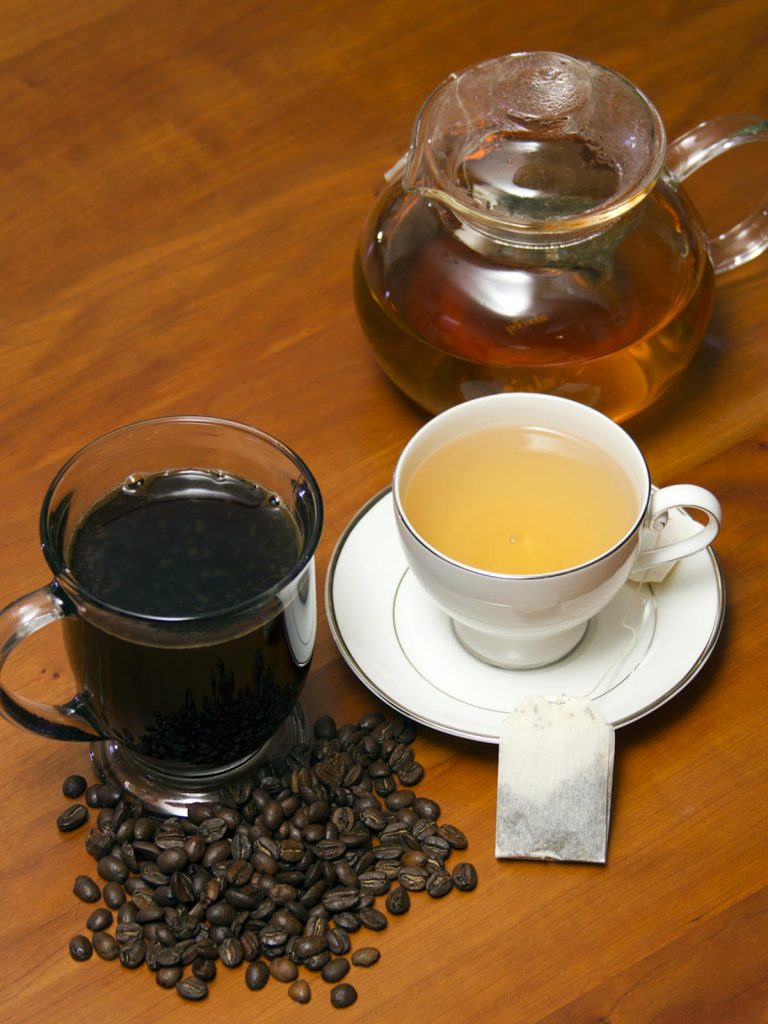
- Stroke survivors who drank seven or more cups of green tea each day lowered their risks of multiple causes of death by 62%.
- Drinking one cup of coffee each day lowered the risks of death for heart attack survivors and for those without a history of stroke or heart attack.
Stroke and heart attack survivors can reduce multiple causes of death and prevent further cardiovascular events by drinking green tea, according to new research published today in Stroke, a journal of the American Stroke Association, a division of the American Heart Association. The study also found daily coffee consumption helps heart attack survivors by lowering their risk of death after a heart attack and can prevent heart attacks or strokes in healthy individuals.
Previous research has examined the benefits of green tea and coffee on heart health in people without a history of cardiovascular disease or cancer. Researchers in the study “Green tea and coffee consumption and all-cause mortality among persons with and without stroke or myocardial infarction” sought to determine the effects of green tea and coffee consumption after surviving a stroke or heart attack.
“There is a strong need for scientific evidence on the lifestyles among survivors of stroke and heart attack considering the rapidly aging population and the need to improve life expectancy following these cardiovascular events,” says Hiroyasu Iso, M.D., a professor of public health at Osaka University in Suita, Japan, and the study’s corresponding author.
Researchers analyzed data of more than 46,000 participants (ages 40 to 79, 60% female) from the Japan Collaborative Cohort Study for Evaluation of Cancer Risk (JACC study), a study conducted in 45 communities across Japan. Participants were asked to complete self-administered questionnaires that included information about demographics, lifestyle, medical history, and diet. People were then divided into three groups: history of stroke; history of myocardial infarction (MI); and no history of stroke or MI. Researchers then analyzed the amount and frequency of green tea and coffee consumption. Researchers noted that a typical cup of green tea contains approximately 100mL (about 3.4 ounces) of liquid, and a typical cup of coffee contains approximately 150mL (about 5 ounces) of liquid.
Results include:
- When compared with participants who rarely drank green tea, stroke survivors who consumed at least seven cups of green tea daily lowered their risk of all-cause mortality by approximately 62%. Researchers did not observe a statistically significant association among participants without a history of stroke or heart attack.
- Heart attack survivors who drank one cup of coffee a day reduced their overall risk of death by approximately 22% when compared to those who did not regularly drink coffee.
- People without a history of stroke or heart attack who consumed one or more cups of coffee a week had approximately a 14% lower risk of all-cause mortality compared to non-coffee drinkers.
- Green tea consumption can prevent further cardiovascular events in survivors, while drinking coffee can prevent such events in healthy individuals.
“An important distinction to make is that in Japanese culture, green tea is generally prepared with water and without sugar. Additionally, coffee is prepared with water and occasionally milk and sugar,” said Iso. “The healthiest way to prepare these beverages is without an unnecessary amount of added sugars.”
Researchers note that this study was observational, and the reason why drinking green tea and coffee lowered the risk of heart attack and stroke cannot be determined. Further research is needed to understand the details in the different effects of green tea and coffee.
Reference: “Green Tea and Coffee Consumption and All-Cause Mortality Among Persons With and Without Stroke or Myocardial Infarction” by Masayuki Teramoto, Isao Muraki, Kazumasa Yamagishi, Akiko Tamakoshi and Hiroyasu Iso, 4 February 2021, Stroke: Journal of the American Heart Association.
DOI: 10.1161/STROKEAHA.120.032273
Co-authors are Masayui Teramoto, M.D.; Iso Muraki, M.D, Ph.D.; Kazumasa Yamagishi, M.D., Ph.D.; Akiko Tamakoshi, M.D., Ph.D.
1 Comment
Sometimes I wonder if they are analyzing the data correctly, because it may very well be that coffee drinkers live longer, because they have a pleasure to look forward to, a reason to live. 🙂